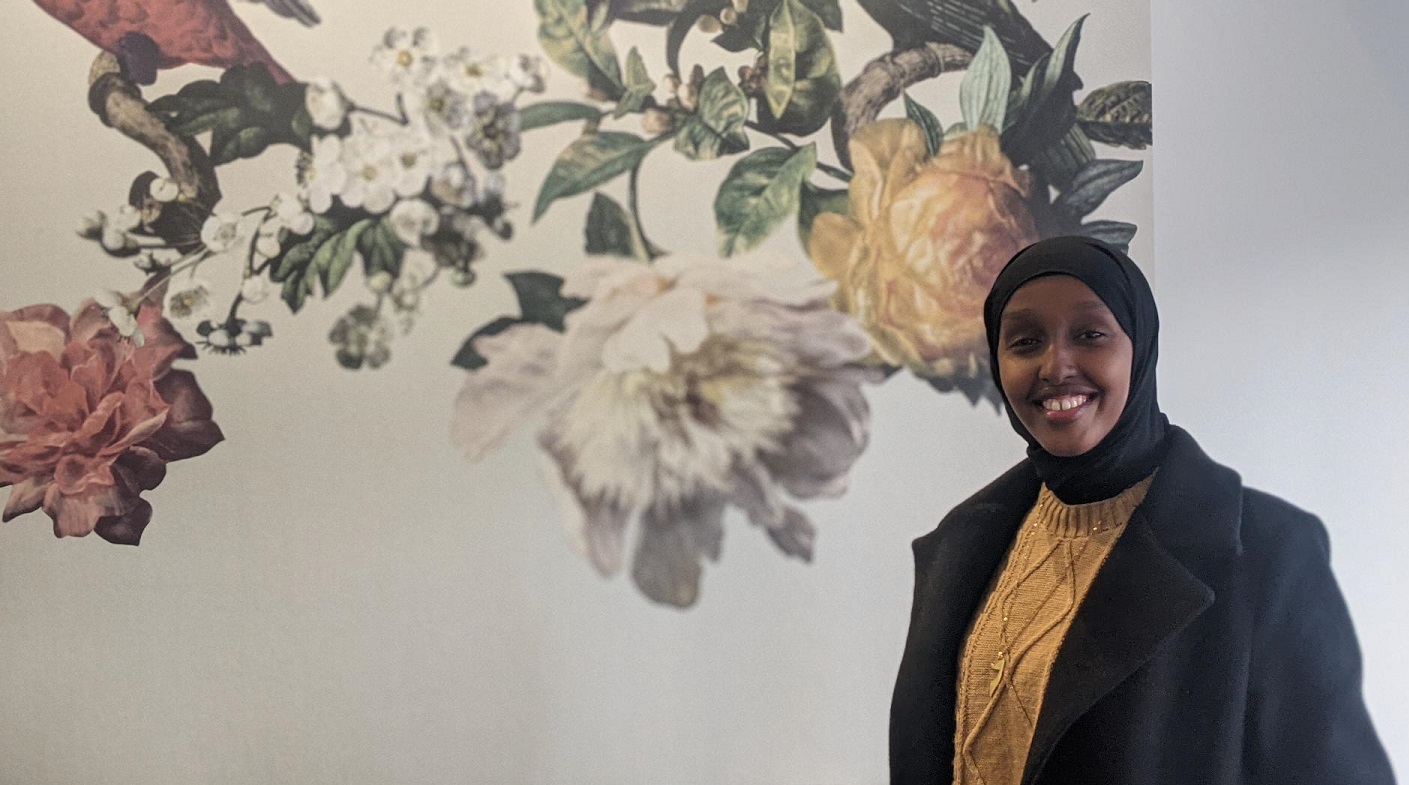
Sadia practiced paediatric medicine in Somalia, before she was forced to flee her homeland. © UNHCR Cyprus
On the occasion of International Women’s Day, we interviewed Sadia, a medical doctor from Somalia, who has recently been granted international protection in Cyprus and is starting to rebuild a new life as an independent woman.
Sadia is a medical doctor from Mogadishu, Somalia. She was forced to flee due to the lack of safety in her home country and is now living as a subsidiary protection beneficiary in Cyprus. She arrived alone in September 2023, and is currently at the Kofinou Reception Centre after having spent her first month in Cyprus at the Pournara First Reception Centre. As Sadia has recently been granted subsidiary protection status, UNHCR staff at Kofinou are assisting her to access opportunities for skilled employment, to help her transition out of the Centre to an independent life. “I will start again, from nothing, but I am happy for the opportunity. I want to thank UNHCR for helping me to get a job and a better future,” she said.
Sadia is fluent in four languages and before having to flee from her homeland, she had completed her medical studies and was practicing paediatric medicine. For her to practice medicine in Cyprus, she will have to get her qualifications verified, for which she will need to complete some classes and pass several exams – in Greek. She is concerned that it will take her some time to master the language to the required level. She will have to work in other fields meanwhile until she is adequately prepared to take the exams.
With UNHCR’s assistance, Sadia hopes to find work soon. Being able to access professional employment as soon as she was granted protection status means she will no longer be dependent on state benefits and can start to build a new future for herself as an independent woman. UNHCR is assisting other residents of Kofinou as well to find employment, transition out the Centre, and become integrated and productive members of society the soonest possible.
While Sadia was lucky to receive protection status soon after she arrived in Cyprus, most asylum-seekers need to wait longer periods to receive decisions on their asylum cases. And with the recent change in access to employment for asylum-seekers, requiring them to wait 9 months – instead of one month – in order to start working, their path to integration and independence has become more complicated.
“Everyone can become an immigrant one day in their life. Today you think you’re safe, maybe tomorrow you will become a refugee. I never thought I would become a refugee. I studied, I did everything right, and I ended up a refugee in a camp. My country wasn’t safe. Anyone can be like me.”
Back home in Somalia, Sadia was raised in a large family with six siblings and six half-brothers and sisters. She was always a good student and had supportive and trusting parents who believed in her. She dreamed since childhood of becoming a doctor, after she was inspired by an ophthalmologist’s visit to her school when she was just nine years old. Sadia is the first doctor in her family. She has a chronic health condition that was diagnosed when she was a teenager, and which remains untreated until today.
During her stay at Pournara, Sadia was sharing a living unit with five other women. Though she felt safe, she was not always able to eat the meals that were provided. “On those days I stayed hungry, waiting for the next day’s meal, and just having a biscuit,” she recalls. Sadia often assisted other residents at Pournara with translations at the Medical Centre when they couldn’t easily communicate with the staff and needed help.
“I hope that the wars will end in all countries. Hopefully every country can find peace. Like everyone, we also want to stay in our home country – we don’t want to live as refugees in another country.”
At Kofinou Sadia finds the conditions more comfortable and enjoys the possibility to cook sometimes with a friend in the communal kitchens. Having a bus pass enables her to go out of the centre, access more services and be able to get more oriented with Cyprus – key steps towards integration. Since she has been at Kofinou, Sadia has been regularly offering her time and voluntarily attending hospital appointments several times a week with other residents who were facing language barriers. When she accompanies other refugees at the hospital, she translates for them, but has never mentioned to any of the doctors that she herself is also a doctor. “I feel happy when I help people; I’m passionate about it,” she says. “When you help, God will help. Everyone needs help. One day maybe you will need help.”
While Sadia feels grateful and happy that she has received international protection, she is concerned because subsidiary protection status is temporary, and this makes her feel insecure about the future. She is hoping to pursue a Master’s degree in Health Management and is interested in mental health, maternal health and children’s health. “These are all areas that are lacking in my home country; that’s why I think about working in these areas,” says Sadia. But her immediate priorities are first to start work and find a place to live so she can begin to feel independent in a new country; secondly to learn the Greek language and third, to register her medical degree and get her license to practice medicine again.
#InvestInWomen
#IWD2024
Μοιράσου το στο Facebook Μοιράσου το στο Twitter